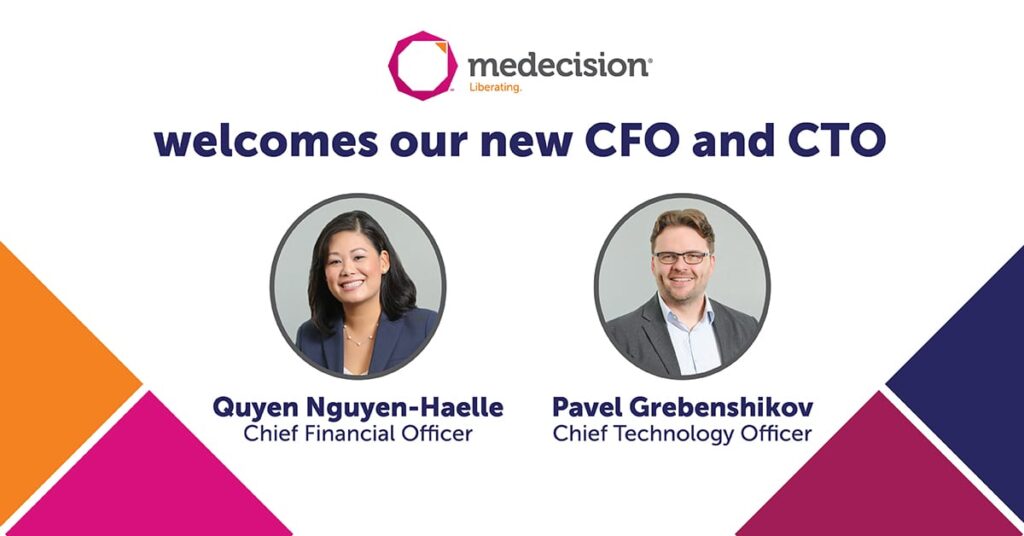
Health equity has become something of a catchphrase, but it’s an important one to know. At Medecision, we’re deeply committed to working toward a healthcare system that gives every person the opportunity to attain his or her full health potential, regardless of circumstances.
By Medecision
Health equity is a hot topic in the healthcare industry, and rightly so. However, the concept of health equity has been around for a while. In 2000, the U.S. Department of Health and Human Services launched Healthy People 2010, which had two main objectives: improving the overall health of Americans and eliminating racial and ethnic healthcare disparities. And in 2008, the WHO (World Health Organization) Commission on the Social Determinants of Health called reducing health inequities an “ethical imperative.”
But we still have a long way to go. The COVID-19 pandemic highlighted the longstanding inequities in healthcare, as data showed that people of color, specifically Black Americans and Indigenous and Latino-Hispanic populations, had disproportionate rates of hospitalizations and deaths due to COVID-19. It also highlighted ongoing structural racism—“institutions, practices, mores, and policies that differentially allocate resources and opportunities so as to increase inequity among racial groups,” according to a September 2020 article in the New England Journal of Medicine.
Simply put, COVID-19 revealed how the healthcare industry has failed vulnerable populations for many years—and how we still have so much more work to do.
What Is Health Equity?
The Centers for Disease Control and Prevention explains that “health equity is achieved when every person has the opportunity to attain his or her full health potential and no one is disadvantaged from achieving this potential because of social position or socially determined circumstances.”
It’s not to be confused with equality, which assumes that every person benefits from the same support and resources. Equity acknowledges that individuals need different support to attain the same outcomes. Consider telehealth, for example. During the COVID-19 pandemic, many healthcare providers moved from traditional care to nearly exclusive use of telehealth. But for the individual who does not have access to technology and/or a strong WiFi or broadband signal, access to care is nearly impossible. Even before the pandemic, research showed that older Americans, vulnerable populations, racial and ethnic minorities, people in rural communities, and those with a lower socioeconomic status were all disadvantaged by healthcare’s digital shift.
“Improved health technology has the potential to improve outcomes and the patient experience—but it can also exacerbate the longstanding inequities found throughout our health system and our nation,” wrote James L. Madara, MD, CEO and executive vice president, American Medical Association.
Building a More Equitable Healthcare Industry
As we move beyond COVID-19, the healthcare industry as a whole—and the nation—is challenged with addressing the factors that contribute to health inequities and building a more equitable public health. In a July 2020 Brookings article, Stuart M. Butler highlighted a few ways that we can “start to rebalance the health system.”
“The core of a rebalancing strategy should be to improve the health of more vulnerable households by integrating medical with nonmedical services, such as housing, social services, and long-term care supports,” Butler wrote. “Public policy should be designed to expand opportunities to deliver services outside clinical settings, including schools and housing projects serving as hubs. Combining such services is common in many developed countries. The United States is the outlier among OECD (Organisation for Economic Co-operation and Development) countries in spending so heavily on medical services relative to social services—and has generally poorer health outcomes.”
At Medecision, we want to more clearly understand the inequities in the healthcare industry—and we acknowledge the importance of amplifying other voices and perspectives. That’s why we’re thrilled to partner with André Blackman, founder and CEO of Onboard Health, a specialized executive search and advisory firm dedicated to building an equitable future of health.
In June, Blackman shared the names of 16 individuals who are effectively challenging the healthcare industry to consider how to build an equitable, healthy future. Later this month, he’ll launch his “Equity Builder” series here on the Liberate.Health blog.



About The Author: Medecision
Fully delivering on the promise of data — and making the business of healthcare simpler and more successful — Medecision offers a whole new world of possibilities. The company's flagship offering, Aerial™, stands as the market's most extensible clinical data platform. It offers complete contextual awareness of members and automates next best actions — simple campaigns, complex care management, utilization approvals, and more — for optimal health outcomes.
Aerial is not only quick to deploy, it is easy to manage. The platform's effectiveness in reducing both medical and administrative costs, coupled with its role in improving the member and patient experience, has made it the preferred choice for health plans and care delivery organizations. Presently, Aerial is instrumental in catering to over 10% of the U.S. population, marking a significant milestone in advancing healthcare efficiency and effectiveness.
More posts by Medecision